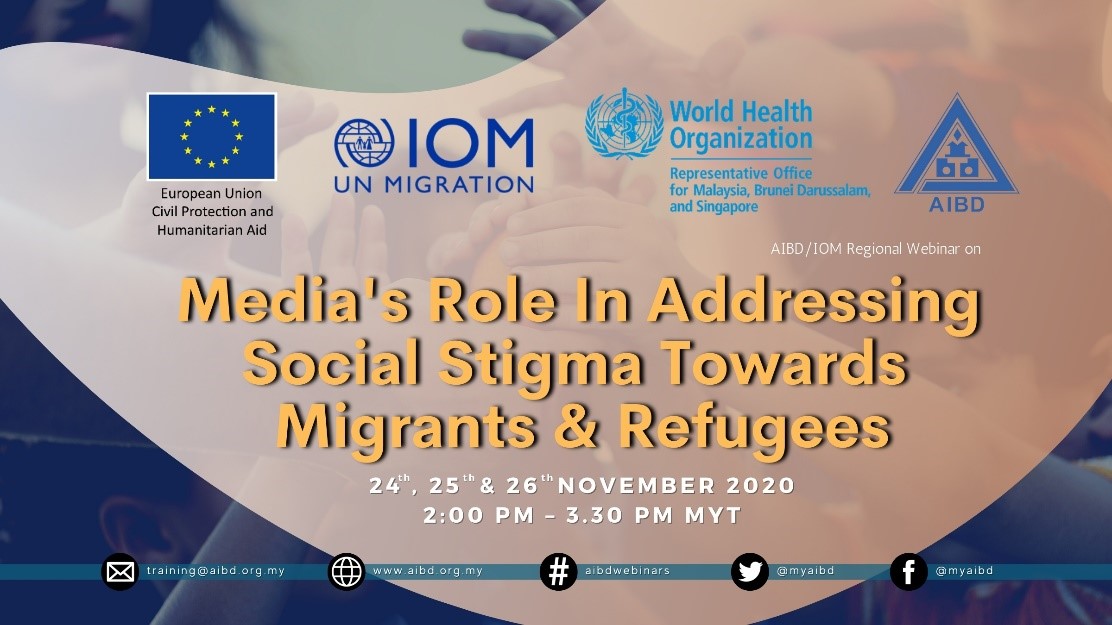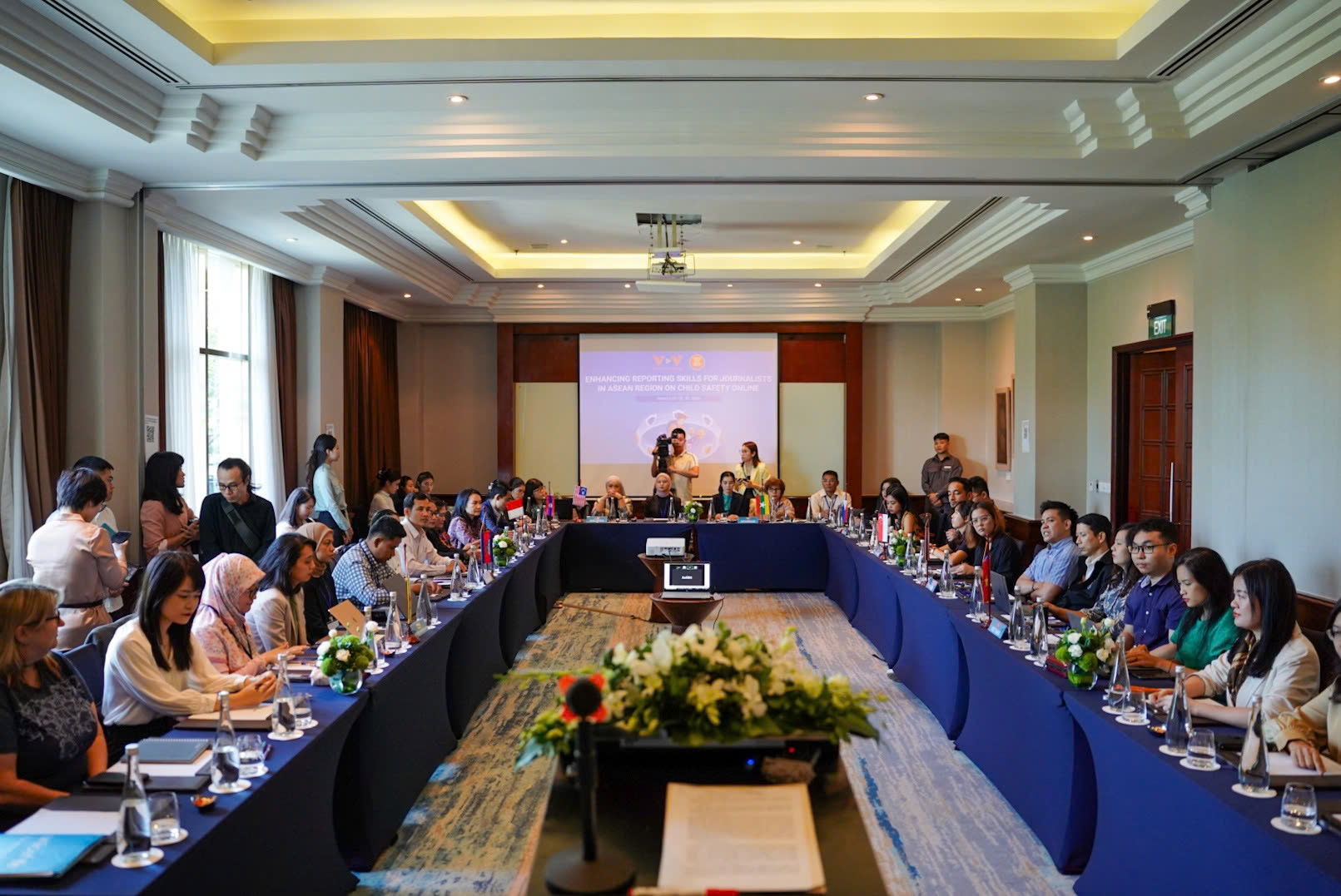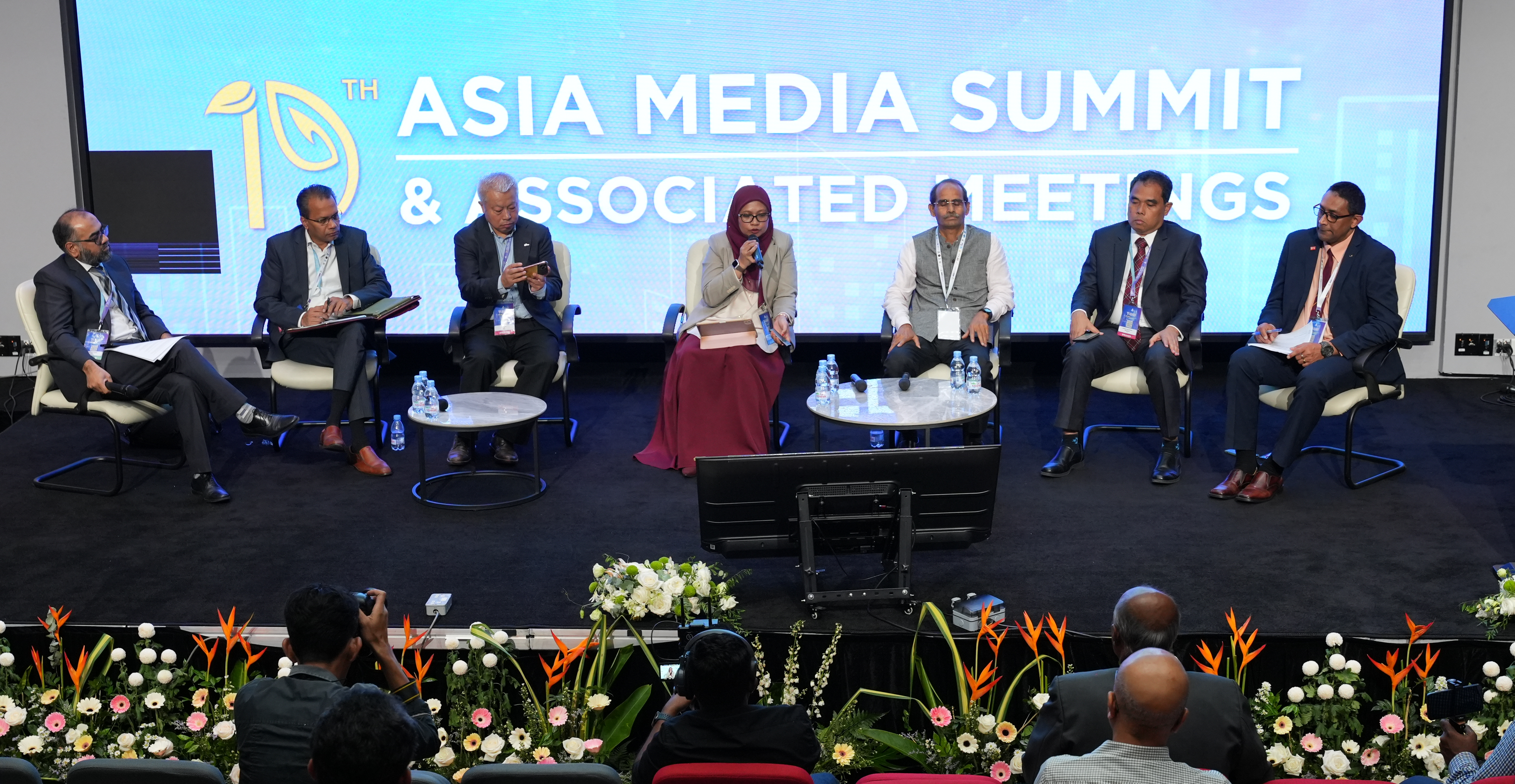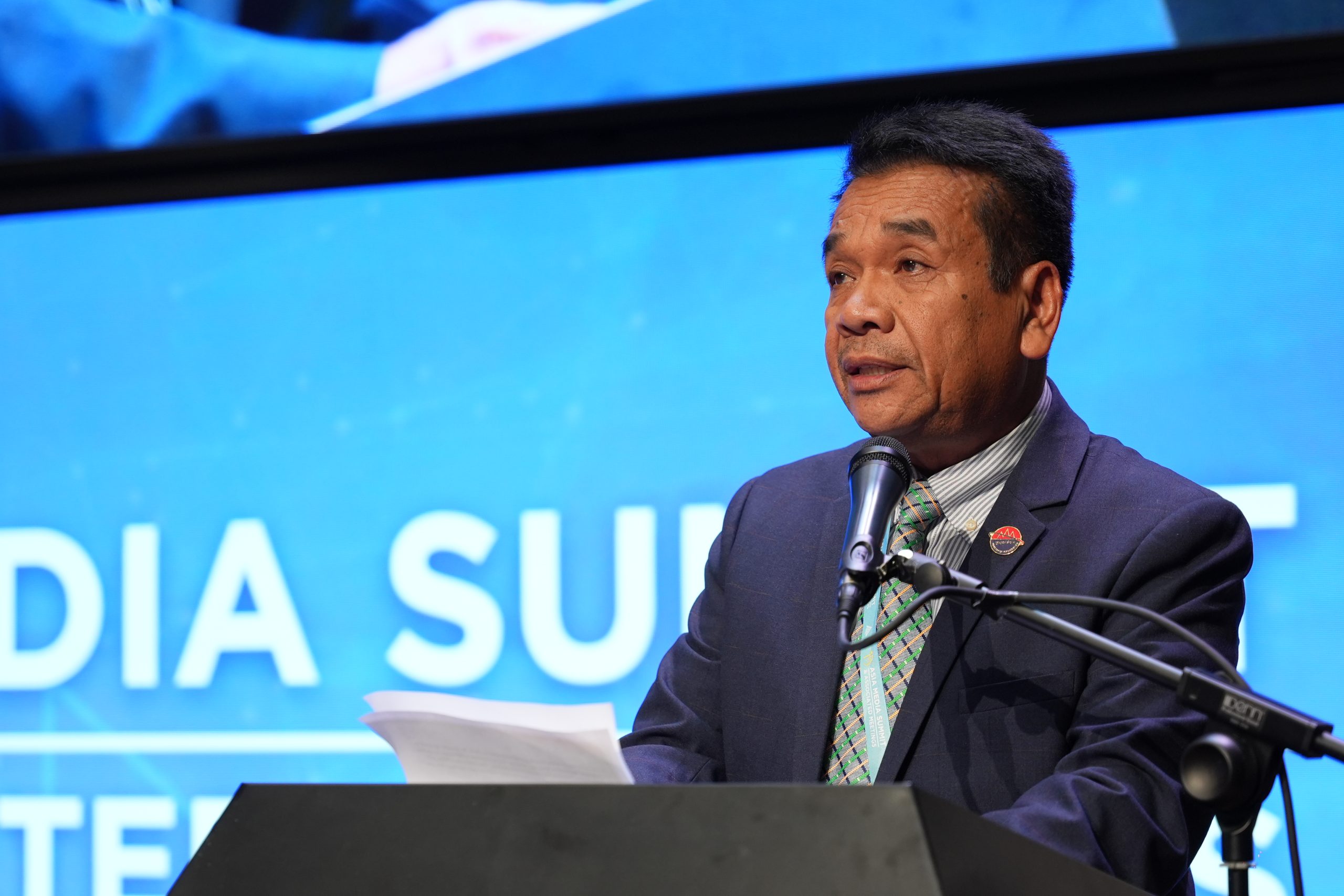
A webinar was told “Migrants & Refugees are All Humans”

AIBD-IOM webinar from 24-26 November 2020
Hate and discrimination targeted against migrants in many countries globally is currently exacerbated due to misinformation and fears associated with the COVID-19 pandemic.
Head of International Organisation for Migration (IOM) Malaysia, Ms Kendra Rinas said refugees and migrants are often vulnerable and the scapegoat of the spread of pandemic like COVID-19, which lead to them fearing to seek medical help.
“The fear that this creates for migrants and refugees can drive populations into not seeking testing or medical treatment, hiding from authorities out of fear, and this creates further risk for all of us as stigma and xenophopia hurts us all’, she added.
Expressing her views, she stressed that these incidents and expressions of xenophobia have both short and long-term implications for society-at-large.
Therefore, she urged the media to play an essential role in accurate information and accurate reporting.
Ms Rinas was delivering her brief opening remarks of a 3-day webinar on Media’s Role in Addressing Social Stigma towards the Migrants and Refugees in the Context of COVID.
The webinar started off with a brief introduction by the Director of AIBD, Ms Philomena Gnanapragasam, who hoped the webinar can enhance the crucial roles of journalists to use more inclusive language in their reporting on the issues of migrants and refugees.
The webinar came about on the courtesy of the World Health Organisation (WHO) Western Pacific Office which links AIBD with the International Organisation for Migration (IOM) Malaysia under the United Nations Migration Agency.
AIBD as a regional broadcasting training institute took up the challenges by doing all the necessary preparations with input from IOM Malaysia. After holding discussion with the relevant parties, it was decided to conduct the webinar for 3 days of 1-and-the-half-hour per day. This is to avoid participant’s fatigue by gluing too long on the computer screen.
Some 67 participants from Bangladesh, Cambodia, India, Indonesia, Korea, Mauritius, Myanmar, Malaysia, Nepal, Nigeria, Pakistan, Sri Lanka and Thailand joined the regional webinar from 24th to 26th of November 2020.
The aim of the webinar was to enlighten media professionals, mainly journalists, editors, producers and presenters to play a crucial and critical role in shaping public perceptions of issues regarding the social stigma towards migrants & refugees by providing facts, insight, and balanced information.
The 3-day regional webinar has four sessions. Session 1 by a trainer from IOM Malaysia, Ms Malarvili Meganathan who spoke about issues regarding the “Public Perception and Xenophobia Towards Migrants” and “The Key Challenges Faced by Migrants”. Ms Malarvili’s session was an insightful, knowledgeable, and interactive which provided the participants with an enhanced knowledge to understand about migrants more in-depth and especially the fear, racism, and stigmatization they experienced every single day. This enable the participants to visualise and put themselves in the shoes of the migrants.
The Day 2’s session of the webinar was firstly shared by Ms Melinda Frost, Risk Communication Lead from the World Health Organisation (WHO) Headquarters, Geneva. Ms Frost talked about the “Info-demic Management: Managing rumours and Misinformation to Address Stigma”.
For Day 2’s third session, Mr Teo Ann Siang, Research and Community Liaison of Humanitarian Care Malaysia Berhad (MyCARE), spoke about the “Media Matters: Representation and Humanitarian Assistance”. Mr Teo is also the Author of ‘No Way Home’.
While Ms Frost focuses on tackling misinformation and due to the pandemic situation, misinformation is also one of the biggest contributors to social stigma towards refugee and migrants. Her views were echoed by Mr Teo who shared about his personal experiences and pictures that he took together with the migrants and refugees. This allowed participants to know the actual and real situation of the migrants and refugees.
The last and fourth session on Day 3 focuses on Panel Discussion with participants by well-known Malaysian panellists and moderated by Ms Malarvili Megnathan. They are Humanitarian Commission of Malaysia (SUKAKAM)’s Commissioner, Mr Jerald Joseph, Co-Founder and International Director of Geutanyoe Foundation, Ms Lilianne Fan and Founder & Chief Executive, Galen Centre for Health and Social Policy, Mr Azrul Mohd Khalib. Topics regarding COVID-19: Stigma, Solidarity and Social Cohesion were discussed, and participants were actively asking questions and giving their valuable opinions throughout the entire session.
During the entire 3-day regional webinar, the participants have been exposed to the global scenario of migrants and refugees with insightful knowledge. The sessions had provided the attendees, who are representing different media organisations from 13 different countries, to have a better awareness on this issue and be more cautious in selecting the language, while writing their stories and reporting news from different angle on migrants and refugees.
The public must know about the migrants and refugees issue and views them with empathy as no one deserves to live in anxiety every day, fearing to seek medical health which are basic human necessity. Even while being migrants or refugees, they are still human.
In her closing remarks, Ms Rinas highlighted the key points as follows:
• Migrants have contributed to the economic growth of Malaysia, and thus need to be included in the COVID response;
• It is essential to protect Human Rights of all people if we are to overcome COVID;
• Ending Stigma and the root causes will help protect all of us!;
• Media is extremely essential at framing the narrative and response on COVID and on migrants;
• Media have a powerful voice! Hence, use it to address and prevent stigma and speak out against violence, and help us all recover together; and
• Although, this is not an easy task, but media have the means to speak about inclusiveness to overcome COVID’s health and economic impact for the society at large.






